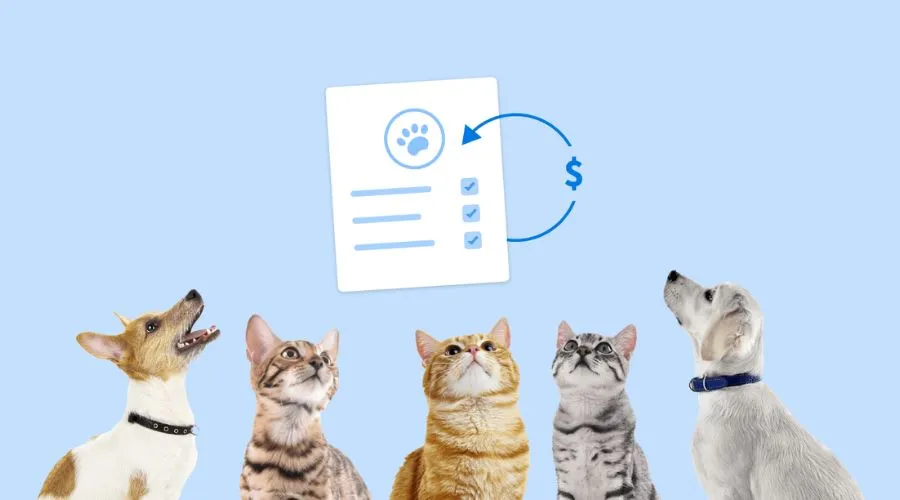California pet rent laws in 2025 bring clearer rules for both landlords and tenants, ensuring fairness, transparency, and compliance with housing standards. From limits on pet deposits to protections for emotional support animals, these updates shape a more balanced rental market. With LeaseRunner, you can simplify lease management, stay ahead of legal changes, and confidently handle pet rent policies that meet California law.
Overview of Pet Rent Laws in California
California pet rent laws are designed to balance landlord rights and tenant protections. Understanding pet-friendly rental laws in California helps renters know which fees are allowed. It also ensures landlords stay compliant with existing housing regulations and new California rental laws 2025.
Is Pet Rent Legal in California?
Yes. Pet rent is legal in California under California Civil Code Section 1950.5. Landlords can charge a monthly pet rent as long as it’s clearly stated in the lease agreement. This fee is separate from a pet deposit, which counts toward the overall security deposit cap.
However, any pet rent rules in California require the fee to be reasonable. It cannot be used to bypass fair housing protections that apply to service or emotional support animals. In states with landlord-friendly rental regulations, property owners often have more flexibility when setting pet policies.
Current Legal Status (2025 Update)
As of 2025, landlords can charge pet rent in California, as there’s no statewide prohibition on pet-related fees. Under AB 12, which took effect on July 1, 2024, total deposits — including pet deposits — are limited to one month’s rent, whether the unit is furnished or not.
Because pet rent is a recurring monthly fee, it isn’t capped but must be disclosed upfront in the rental agreement. Lawmakers debated AB 2216, which aimed to ban pet rent and pet restrictions, but it did not pass in the 2024 session.
A proposed bill, AB 2216, intended to ban pet rentals, but it didn’t pass in 2024. Meanwhile, SB 611 (effective July 1, 2025) targets hidden or “junk” fees, requiring landlords to clearly itemize all additional charges, including those related to pets. For a deeper overview of California’s rental regulations, you can explore California rent laws, which explain key limits and tenant protections under state law.
Pet Fees, Deposits, and Legal Limits in California
Owning a pet in a rental home can come with extra costs. California pet rent laws set clear limits on what landlords can charge and how deposits must be handled to protect tenants’ rights. These rules clarify pet deposit limits in California and which charges are refundable.
Security Deposit Caps and Pet Deposits
California has strict security deposit laws that protect both landlords and tenants by clearly defining how deposits must be handled. Under AB 12 (Civil Code §1950.5, amended 2024), California’s total security deposit limit is capped at one month’s rent for leases starting after July 1, 2024. This one-month cap includes any standard pet deposit for rentals. It must be refundable and included in the total deposit, not separate.
Small landlords who own no more than two properties with four units total may still collect up to two months’ rent, but the one-month cap applies to most rentals. Charging more is illegal and can result in penalties up to twice the deposit. These rules ensure tenants aren’t overcharged for keeping pets in rental housing.

Rules on Pet Rent Charges
Landlords in California may charge a monthly pet rent as an additional fee, usually between $25 and $75 per pet per month. There’s no statewide maximum, but the amount must be reasonable under consumer protection laws. The charge must be listed in the lease agreement and not be raised mid-lease unless both parties agree.
When landlords increase the charge or adjust the rent, they must comply with California rent control laws. They should also review local ordinances, as many cities impose additional rules on rent increases or pet-related fees.
Some local ordinances, especially in Los Angeles, require clear disclosure of pet rent to avoid discrimination claims or unfair charges. Always check local housing codes before setting or paying pet rent.
Refundable vs. Non-Refundable Pet Fees
Under California Civil Code §1950.5, all pet deposits and fees are considered part of the security deposit. This means they must be refundable after move-out, minus any verified damage. Landlords cannot legally label a non-refundable pet fee in California, since state law prohibits it.
Courts often side with tenants when a pet fee vs deposit in California dispute arises. A “non-refundable pet fee” is usually reclassified as illegal. However, pet rent is different—it’s recurring rent, not a deposit, so it’s naturally non-refundable.

Local Ordinances and City-Specific Rules
While California pet rent laws apply statewide, several cities add local restrictions. For example:
- Los Angeles (LAMC 53.76) and San Francisco have stricter animal limits and leash requirements that can affect rental pet policies.
- San Bernardino County allows only two dogs or cats per household without a permit.
- Fresno restricts licenses for unaltered pets.
No major city bans pet rent outright, but rent-controlled areas like LA and SF carefully review fee increases to prevent unlawful rent hikes.
Pets, Service Animals & Emotional Support Animals
California pet rent laws clearly separate ordinary pets from service and emotional support animals (ESAs). These distinctions align with the service animal definition housing California. They help protect tenants with disabilities while ensuring landlords stay compliant with fair housing standards.
What Counts as a Service or Emotional Support Animal (ESA)
Under the Americans with Disabilities Act (ADA) and Fair Housing Act (FHA), service animals are dogs or mini horses trained to perform specific tasks for people with disabilities. These tasks can include guiding the visually impaired or alerting someone to seizures. Emotional support animals, by contrast, do not need training. Their role is to provide comfort that eases mental or emotional disability symptoms under California law's emotional support animal protections.
A licensed mental health professional must confirm the tenant’s need for an ESA, following the verification process assistance animal guidelines. California’s Fair Employment and Housing Act (FEHA) mirrors federal standards. It ensures that both assistance animals in housing categories receive equal protection under ESA laws in California.

When Pet Rent and Fees Cannot Be Charged
No pet rent is allowed for ESA or verified service animals when tenants provide landlords with proper documentation. Landlords cannot charge pet rent, fees, and deposits for these assistance animals. In housing rights, they are not considered pets, so landlords must make reasonable accommodations for tenants with those animals.
An exception applies only if the animal poses a real threat or causes major property damage. In that situation, the landlord must show clear evidence before acting.
Verification and Documentation Rules in California
Property owners may request reasonable proof. For service animals, that could include documentation showing the animal is trained to perform disability-related tasks. For ESAs, tenants can provide a letter from a licensed therapist or doctor verifying the emotional or psychological need. Landlords need to distinguish between pet fees and pet deposits to determine which option they should choose to charge.
Landlords should review the documentation quickly—typically within 10 to 14 days—and issue any denials in writing. Following these steps helps prevent discrimination claims.
Rights and Responsibilities for Landlord and Tenants
California pet rent laws aim to balance the rights of both landlords and tenants while protecting animal welfare. Understanding these rules helps prevent disputes and ensure fair housing for pet owners across the state. They also reinforce landlord obligations to pets and tenant protections under state law.
Landlord Duties Under California Law
Under California Civil Code §1946, landlords must clearly state all pet policies in the lease before move-in. They must follow notice requirements for security deposits and refund them within 21 days after move-out. A detailed, itemized list of any deductions is also required under AB 2801, effective in 2025. Deductions must reflect only real damages beyond normal wear and tear.
California non-discrimination housing laws are primarily enforced under the Fair Employment and Housing Act (FEHA). These laws prohibit discrimination in housing based on protected characteristics. This includes cases involving service or emotional support animals. Violations can result in fines of up to $20,000 per incident.
Landlords should therefore manage pet-related policies carefully and transparently while respecting each tenant’s right to reasonable accommodation. For additional guidance on lawful boundaries, see what a landlord cannot do under California law.
Tenant Rights and Obligations
Tenants have the right to request reasonable pet accommodations if they have a disability. They may also dispute unfair or excessive pet fees. Tenants must disclose all pets in writing and prevent property damage.
They also need to follow reasonable rules, such as dog breed restrictions in California or size limits stated in the lease. To understand how pet-related liability works, renters should consider getting pet liability insurance for renters. This type of coverage helps protect them from financial loss if their pets cause damage or injury.
If a tenant keeps an unreported pet, landlords must first issue a cure notice. Eviction can only occur after the legal process is followed—immediate removal is not allowed. In some cases, tenants can get evicted for a dog repeatedly sitting if it becomes a lease violation. However, such situations usually require proper notice and documentation. Landlords must follow California eviction laws to prepare a notice that includes an appropriate reason and to ensure compliance with all procedural requirements.

Managing Pet-Related Damages and Deductions
When handling pet-related damage, landlords can only deduct proven costs such as cleaning or repair expenses. Receipts and photo evidence are required. Minor wear, like small scratches, does not count as damage.
If the deposit isn’t returned within 21 days, tenants can take the case to small claims court or local housing authorities. They may also claim up to twice the amount wrongfully withheld. Mediation is often the best first step to resolve these pet deposit disputes under California pet rent laws.
Best Practices to Avoid Disputes for Landlords
Managing pets under California pet rent laws can be simple when clear rules are in place. Setting expectations early protects your property, prevents disputes, and builds trust with tenants who own pets.
1. Clear Pet Terms in the Lease
Spell out every detail in the lease agreement. List the allowed pet types, size or breed restrictions, and maximum number of pets. Include the pet rent amount, deposits, and behavior rules—such as no outdoor roaming.
For any updates, attach a California pet addendum template or include a California lease clause for pets to clearly outline rights and responsibilities. LeaseRunner’s online rental application will help you take the stress out of paperwork and tenant information management. We design a compliant and efficient process for you to select the right tenants.
2. Document Property Condition Before and After Tenancy
Scrutinize the rental unit before move-in and again at move-out. Take photos or videos of each room and note any damage on a signed checklist. Using a move-in inspection pets California checklist and a move-out walkthrough pets report ensures fairness and protects both landlord and tenant from future disputes.
Having this documentation helps prove whether pet-related issues occurred during the tenancy and supports fair deductions from the security deposit. If tenants leave behind belongings or animals, landlords should follow California’s rules on abandoned property to remain compliant.

3. Communicate Pet Expectations Early
Discuss pet rules at the application stage. Make your policies clear before tenants move in, and issue written approvals or denials quickly. This open communication builds trust and helps avoid later conflicts about pets or fees.
Providing a pet policy lease sample during this process helps tenants understand what’s expected. Using a trusted tenant background screening service from LeaseRunner can also verify applicants’ rental history and prevent future pet-related disputes.
4. Keep Transparent Records of Fees
Under California pet rent laws, landlords must separate pet fees from other charges. Keep a record of all pet rent payments, pet deposits, and related costs. Always issue receipts and avoid combining charges into a single “all-in-one” fee. Clear documentation ensures compliance with SB 611 and protects both parties in case of disputes.
Conclusions
California pet rent laws in 2025 create a fair balance between landlord flexibility and tenant protection. The regulations limit deposits, promote transparency, and protect service or emotional support animals under fair housing standards. As the legal landscape evolves, landlords should review their leases with legal experts to stay compliant and reduce risk. Guidance and tools are available through LeaseRunner to help streamline lease management and compliance.
FAQs
What is the new pet rent law in California?
Starting in 2025, California pet rent laws will introduce major updates through AB 2801 and AB 12. Landlords must now provide detailed records for any pet-related deductions and can’t charge more than one month’s total deposit, including pet deposits. SB 611 also bans hidden or surprise pet fees.
How much can a landlord charge for pet rent in California?
There’s no legal cap on pet rent in California, but most landlords charge between $25 and $75 per pet per month. Higher fees could be challenged in court if they seem unfair or excessive. Keeping charges reasonable helps avoid legal disputes and keeps tenants satisfied.
Can a landlord break a lease for pets in California?
No. A landlord can’t break a lease just because a tenant has a pet—unless there’s a clear lease violation, such as property damage or safety concerns. For unauthorized pets, landlords must first issue a 3-day notice to cure or quit before taking further action.
Can I get evicted for pet sitting in California?
Usually not. Short-term or occasional pet sitting doesn’t count as violating a no-pet policy if the animal isn’t a permanent resident. However, frequent or undisclosed pet sitting may lead to a warning or a lease review. Actual eviction requires proof of a valid lease violation and proper legal process.
Are Emotional Support Animals covered under California pet rent laws?
Yes. Emotional Support Animals (ESAs) and service animals are protected under Fair Housing laws. Landlords cannot charge pet rent, pet deposits, or additional fees for them. Tenants may need to provide valid documentation, but denying or charging extra for an ESA could be considered housing discrimination.



